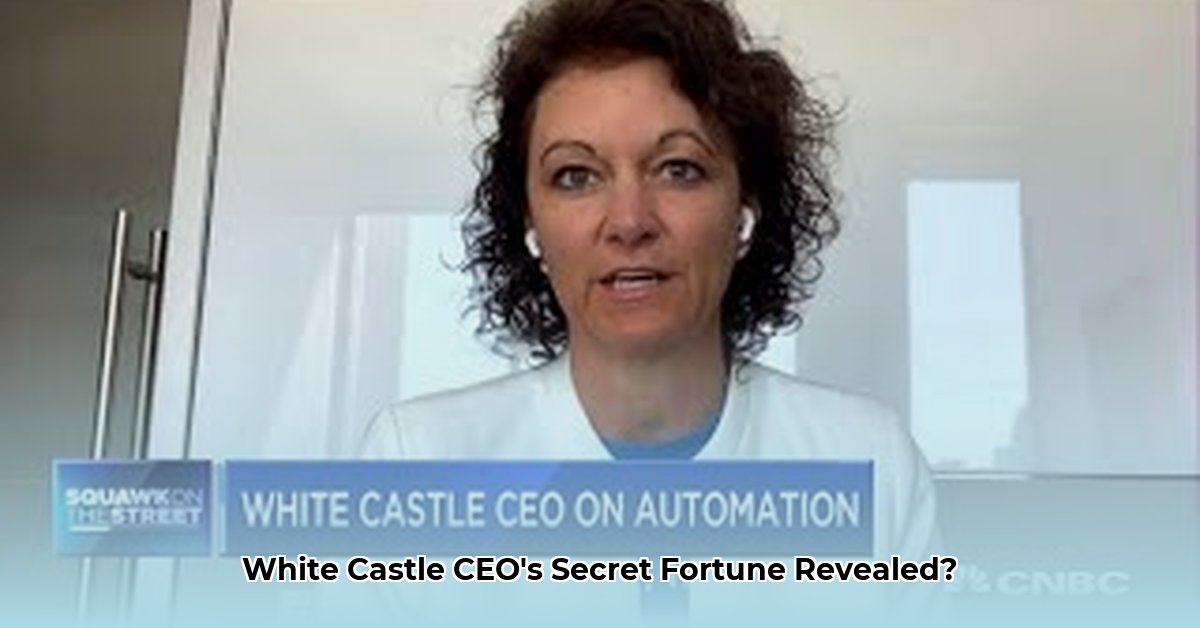
Lisa Ingram, great-granddaughter of White Castle's founders, helms this iconic American burger chain. But the story of White Castle isn't solely about square patties and creamy shakes; it's also a narrative of family wealth, opportunity, and the complex relationship between a company's success and its employees' compensation. For insights into managing family wealth, see this resource. This article explores Lisa Ingram's estimated net worth, compares it to White Castle employee wages, and analyzes the ethical implications of this disparity.
Lisa Ingram's Estimated Net Worth
Determining Lisa Ingram's precise net worth is challenging due to White Castle's private ownership. Publicly available information is limited. However, considering her family's long history with the company and her reported $188,280 annual income as a director at M/I Homes, experts suggest her net worth could reach the range of $100 million. This estimate prompts crucial questions about wealth distribution within a family-owned business and the balance between executive compensation and employee wages. Is this disparity justifiable given White Castle's performance?
White Castle's Compensation Structure: A Detailed Look
White Castle offers a compensation structure that's a mix of positives and negatives. Entry-level wages are often higher than competitors, offering a competitive advantage in attracting talent. The benefits package includes health insurance, a 401(k), and tuition reimbursement—benefits not always common at entry-level positions in the fast-food industry. However, upward mobility is significantly limited. While the company promotes a strong internal promotion system, the actual number of employees reaching management positions is remarkably small–approximately 450 out of around 10,000.
Here's a summarized overview of estimated compensation:
| Employee Category | Hourly Wage Range (Estimate) | Benefits | Upward Mobility Chances |
|---|---|---|---|
| Cashier/Team Member | $10.50 - $12.00 | Health, Dental, Vision, 401k, Tuition Reimbursement | Low (less than 5%) |
| Crew Trainer/Shift Lead | $12.00 - $15.00 | Enhanced benefits; potential for bonuses | Low-Medium (5-10%) |
| Assistant Manager | $15.00 - $20.00 | Comprehensive benefits package, potential for bonuses | Medium (10-20%) |
| Restaurant Manager | $20.00 - $30.00+ | Top-tier benefits, bonuses, stock options (for some) | High (80-90% of those who achieve this level started as hourly workers) |
This data raises questions about the accessibility of internal promotion. Is it a genuine opportunity or primarily a marketing tool?
Family Ownership and Compensation Decisions
Analyzing White Castle’s compensation requires understanding its family-owned structure. Unlike publicly traded companies, White Castle's financial details are not publicly disclosed. This makes direct comparisons challenging, as family-owned businesses often prioritize long-term stability and family interests over short-term shareholder returns. While this doesn't excuse a lack of ethical considerations, it does necessitate a nuanced approach to evaluation. How do these unique pressures shape compensation and career progression within the company?
Ethical and Societal Implications
The potential disparity between Lisa Ingram's wealth and the compensation of average White Castle employees sparks vital discussions on wealth inequality and corporate social responsibility. While competitive starting wages and comprehensive benefits are positive aspects, the limited upward mobility creates an ethical tension. Does a family-owned business bear a greater ethical responsibility to its employees than a publicly-traded company? This question lacks a simple answer, demanding a careful balancing of individual and societal pressures. What is the appropriate standard for family-run businesses, and how does it align with broader social expectations?
Conclusion: Navigating the Future
White Castle faces increasing pressure to address the gap between its stated commitment to employee growth and the reality of limited career advancement. Greater transparency in compensation, expanded promotion opportunities, and substantial investments in employee development programs are essential steps. These improvements could not only enhance employee morale and retention but also benefit the company's long-term success. The decisions made today will shape White Castle's future and its relationship with its employees. Improving upward mobility is not merely an ethical imperative; it's a crucial element for long-term sustainability and success.